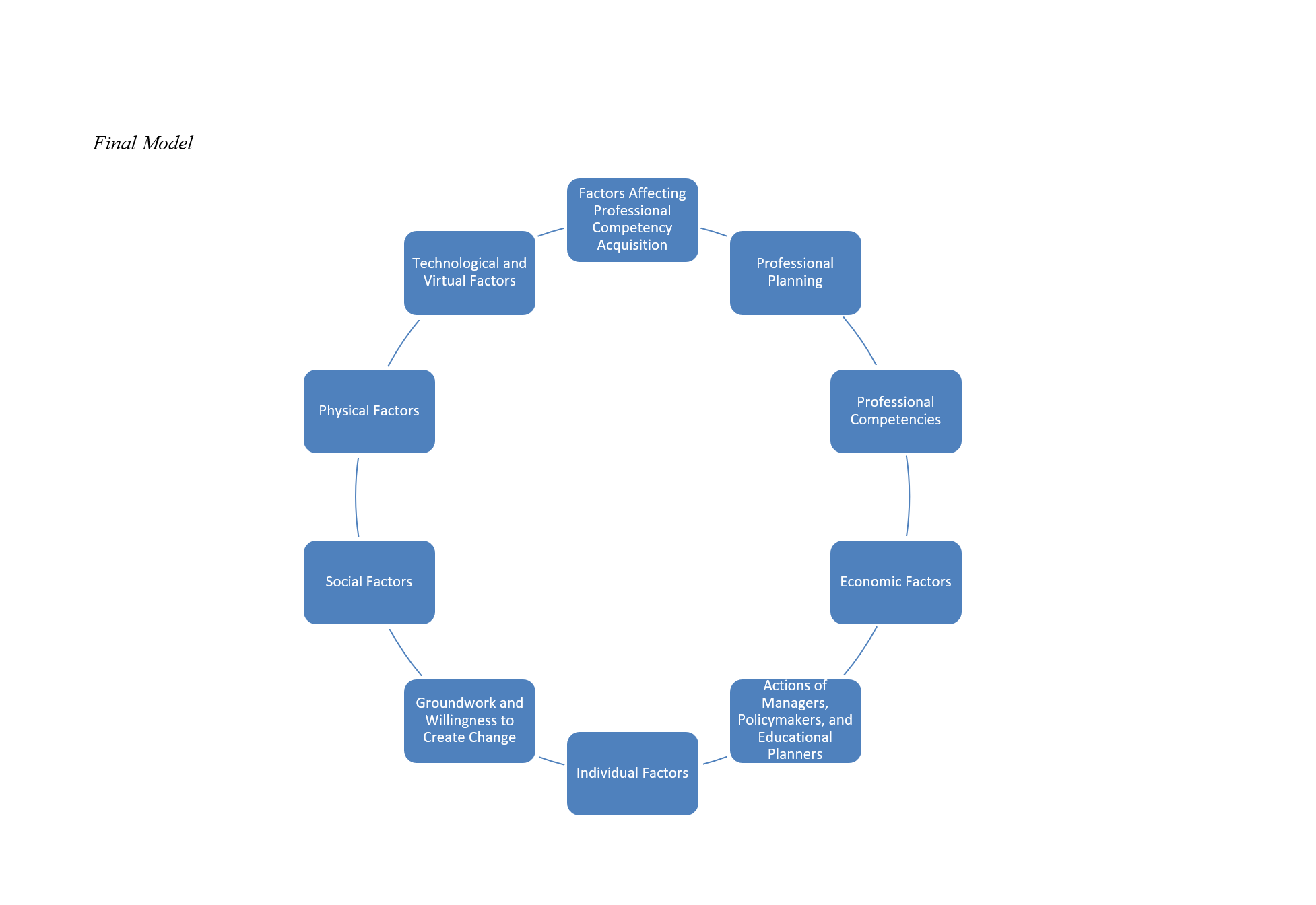Presenting a Model for Education of the Unlimited Generation in the Realm of 2050
Keywords:
Unlimited Generation Education, Realm of 2050, 2050 Generation Education, Educational ModelAbstract
Objective: The present study aims to present a model for the education of the unlimited generation in the realm of 2050.
Methodology: This research is applied in nature and is conducted using an exploratory method. Data collection is performed using a mixed method (quantitative and qualitative). Data collection tools include interviews with experts through specialized Delphi method interviews and questionnaires. Following the questionnaire execution, data analysis in the qualitative section is conducted using coding methods (open, axial, and selective). In inferential analysis, data is analyzed using factor analysis.
Findings: The results indicated that the components: factors affecting the acquisition of professional competencies; professional planning; professional competencies; economic factors; actions of managers, policymakers, and educational planners; individual factors; groundwork and willingness to create change; social factors; physical factors; and finally, technological and virtual (technological) factors; were not excluded from the factor analysis process as none had a factor load less than 0.3.
Conclusion: Ultimately, all 10 components, along with their indicators, were accepted as the dimensions and components of the education model for the unlimited generation in the realm of 2050. The model fit indices in the factor analysis confirm the model's fit.
Downloads

Downloads
Additional Files
Published
Issue
Section
License
Copyright (c) 2024 Aida Akbari Olaghi (Author); Afsaneh Zamani moghadam (Corresponding Author); Nadergholi Ghourchian (Author)

This work is licensed under a Creative Commons Attribution-NonCommercial 4.0 International License.















